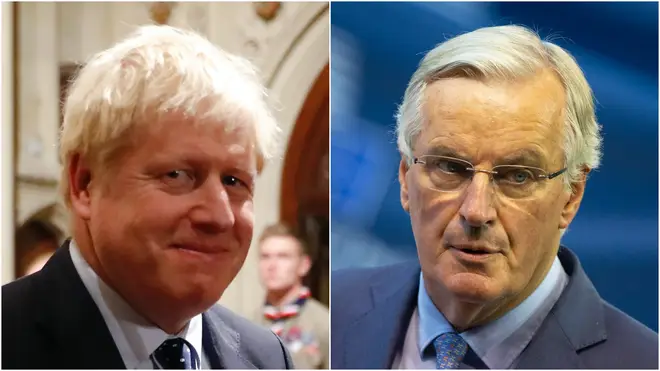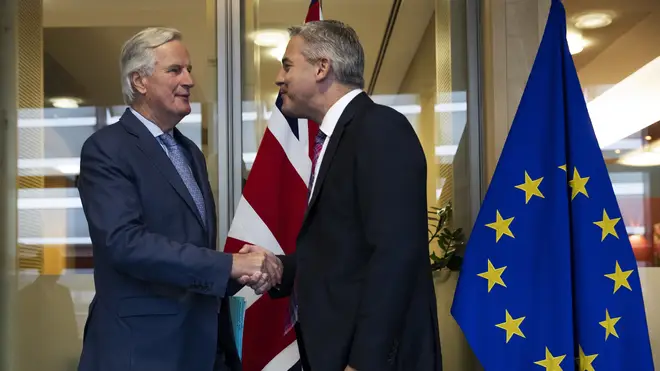
Lewis Goodall 10am - 12pm
15 October 2019, 08:13

The European Union's Chief Brexit Negotiator has said a deal on the UK's exit from the EU is "still possible this week"
Speaking to reporters in Luxembourg Michel Barnier said the work over the weekend had been "intense" but "any agreement must work for "everyone, the whole of the United Kingdom and the whole of the European Union."
He added that it was "high time" to turn "good intentions into legal text."
Boris Johnson has cancelled a planned meeting of the Cabinet on Tuesday morning as talks reach a critical stage.
The Prime Minister was due to update his Ministers on what progress had been made in talks, but on Monday night Number 10 took the decision to give the UK negotiating team in Brussels another day before a detailed update was made to the Cabinet.
The former Foreign Secretary Jeremy Hunt told Sky News if MPs are prepared to put the hours in, reaching an agreement by the end of the month is possible.
He said, "if we get a deal, people will heave a sigh of relief."

Environment minister Zac Goldsmith was asked if he would be prepared to accept a short technical extension to seal a Brexit deal.
He said: "I don't think an extension is necessary. If both sides wish to secure a deal, a deal can be secured.
"It's a matter of political will. Where there's a will there is a way, and that has never been more true than in the case of Brexit.
"And I think it is really important that we don't continue to extend and extend and extend which is what we've been doing for the last few years, because there are issues of trust there.
"But even beyond issues of trust I don't think it serves our interest as a country to be in a permanent state of division and paralysis.
"We've got to get this done and October the 31st matters."
Labour leader Jeremy Corbyn has set out his party's intentions.
He said he will do "everything in his power" to prevent a no-deal Brexit. Mr Corbyn called the prospect of the UK crashing out of the EU a "catastrophe," he said it would impact on "food supplies," "medicine supplies" and jobs.